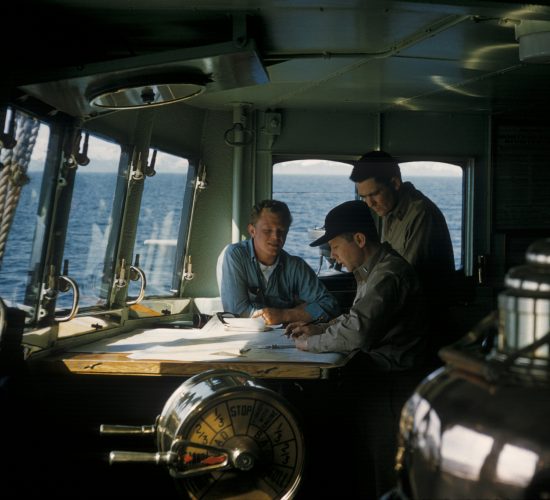Mathematics: The Cornerstone of Progress in Marine Geochemistry

Marine geochemistry is a fascinating discipline that explores the chemical processes shaping the oceans and their interactions with the Earth’s crust, atmosphere, and biosphere. From understanding the carbon cycle to analyzing nutrient distributions, marine geochemists play a critical role in deciphering the complexities of aquatic systems. At the heart of this scientific inquiry lies a fundamental tool: mathematics.
Mathematics serves as a language and a framework for interpreting the data and processes central to marine geochemistry. But how essential is it for marine geochemists to be skilled in mathematics? Exploring its applications, challenges, and benefits reveals how integral this discipline is to advancing the field.
The Intersection of Mathematics and Marine Geochemistry
Marine geochemistry relies heavily on quantitative data, from measuring trace elements in seawater to modeling biogeochemical cycles. Mathematics provides the foundation for analyzing these data and uncovering patterns that might go unnoticed.
For example, differential equations are used to model processes like chemical diffusion, where solutes move through the ocean due to concentration gradients. Similarly, linear algebra underpins the analysis of geochemical data matrices, allowing scientists to identify relationships among multiple variables.
Statistical methods also play a significant role, enabling marine geochemists to interpret large datasets generated by modern instruments. From calculating the mean concentrations of elements to conducting regression analyses, statistics help ensure that findings are accurate and meaningful.
Modeling Oceanic Processes
One of the most critical applications of mathematics in marine geochemistry is the development of models to simulate oceanic processes. These models range from simple representations of localized phenomena to complex systems integrating global ocean chemistry, physical circulation, and biological activity.
Mathematical models help scientists predict how the oceans respond to changes in climate, pollution, or natural events such as volcanic eruptions. For instance, carbon cycle models use equations to describe carbon exchange between the ocean, atmosphere, and marine sediments. These predictions are invaluable for understanding global warming and informing policy decisions.
Numerical methods, such as finite element or finite difference techniques, are often employed to solve equations that describe these processes. These computational approaches require a solid understanding of calculus and programming, highlighting the interdisciplinary nature of marine geochemistry.
Chemical Equilibria and Reaction Kinetics
Chemical equilibria and reaction kinetics are fundamental concepts in marine geochemistry, and their study depends on mathematical principles. Equations describing equilibrium constants help marine geochemists determine the distribution of chemical species in seawater, affecting biological processes and mineral formation.
Kinetics, on the other hand, focuses on the rates of chemical reactions. For example, rate equations can describe the dissolution and precipitation of calcium carbonate—a process critical for understanding coral reef health and ocean acidification. These equations allow researchers to quantify the impact of changing environmental conditions on marine chemistry.
Interpreting Data: A Statistical Necessity
Marine geochemistry generates massive datasets from mass spectrometry, spectroscopy, and remote sensing. Analyzing these datasets requires robust statistical tools.
Multivariate analysis, for example, helps scientists disentangle complex relationships among variables, such as the influence of temperature, salinity, and nutrient availability on trace element concentrations. Techniques like principal component analysis (PCA) and cluster analysis are frequently used to identify patterns in geochemical data.
Probability theory also underpins many geochemical studies, particularly those involving rare events or trace elements. For instance, geochemists use probability distributions to estimate the likelihood of detecting specific isotopes in a sample, aiding in interpreting results.
Challenges in Integrating Mathematics
Despite its importance, integrating mathematics into marine geochemistry poses challenges. Many students and professionals in the field come from backgrounds focused on biology, chemistry, or geology, with limited formal training in advanced mathematics. Bridging this gap requires educational programs that emphasize interdisciplinary skills.
Additionally, the complexity of mathematical models and computational techniques can be daunting, especially for those unfamiliar with programming or numerical analysis. Collaborative efforts between marine geochemists and mathematicians are increasingly common, fostering an environment where expertise from both disciplines contributes to solving marine science problems.
The Case for Mathematical Proficiency
While not every marine geochemist needs to be a mathematical expert, a foundational understanding of key mathematical concepts is undeniably advantageous. Proficiency in mathematics allows scientists to engage more deeply with their data, develop innovative models, and critically evaluate the results of their analyses.
Moreover, as technology advances, the role of data science and machine learning in marine geochemistry continues to grow. These fields require strong mathematical skills, particularly in optimization, algorithms, and statistical modeling. Familiarity with these tools can open new avenues for research and enhance a geochemist’s ability to tackle complex questions.
Preparing for the Future
Educational institutions must emphasize the importance of mathematics to ensure the next generation of marine geochemists is equipped to meet the field’s challenges. Calculus, statistics, and computer science coursework should be integrated into marine science programs alongside traditional subjects like chemistry and biology.
Workshops, internships, and collaborative research projects can provide hands-on experience with mathematical tools and techniques. Encouraging interdisciplinary approaches will help future scientists feel confident applying mathematics to their research.
A Necessary Skill for Modern Marine Science
In marine geochemistry, mathematics is more than a tool—it is a lens through which the complexities of the ocean can be understood and addressed. Mathematical skills are essential for advancing the field, from modeling biogeochemical cycles to interpreting massive datasets.
While the learning curve may be steep for some, the rewards are immense. By embracing mathematics, marine geochemists can uncover new insights into the world’s oceans, contribute to critical environmental solutions, and expand the boundaries of scientific understanding. For anyone passionate about marine science, developing mathematical proficiency is not just an asset—it’s a necessity.
Additional Information
- Blogs
- biogeochemical cycles, marine geochemists
- David Hastings